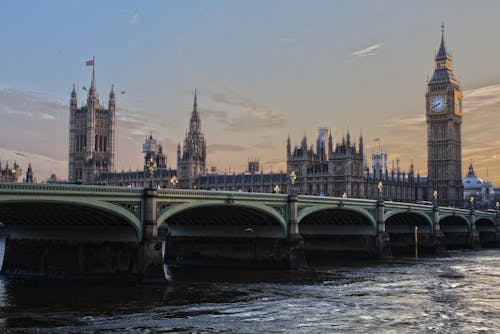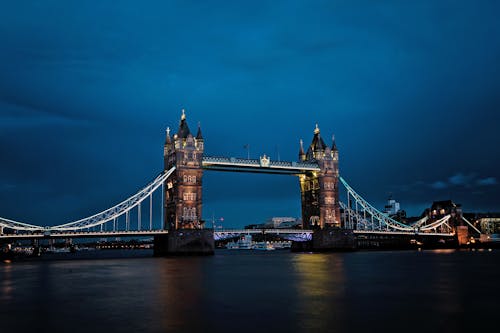20+ Interesting, Popular British Last Names
Looking to learn more about popular British last names and their origins? This list of British surnames breaks down the history, meanings, and more.
What’s in a name? When it comes to English surnames, they are based on physical attributes, trades, or place names. There are over 45,000 different ones! So what’s the history behind British names? Does the Royal Family play a part in names? What are the most popular British last names? Let’s dive into it!

History of the Name “Great Britain”
The Norman Invasion had a major effect on England in every aspect. However, linguistically speaking, the Anglo-Saxons who took over the elite had an influence on the name “England” itself. “Engla land” meant “land of the Angles (people from Germany). It wasn’t until 1603, during the reign of King James I of England that the term “Great Britain” was used. In 1707, the “United Kingdom” was formed. “Uniting of Kingdoms” was formed by the Act of Union that created one kingdom with one parliament, which is what we have today. The United Kingdom as we know it today is made up of England, Scotland, Wales, and Northern Ireland.
The Royal Family: Past and Present
Once upon a time, every country had royal families. This was to develop a history with their country’s roots and to show the value of family and unity, especially in times of war. Over time, countries started to grow out of this “royal family” thing. Britain didn’t.
The British Royal Family as we know it today as reigned the United Kingdom for over 1200 years and over 37 generators. In 1917, King George V made an order that the Royal family would change their surname from the German Saxe-Coburg-Gotha to Windsor.
So now, Under the throne of Queen Elizabeth II, the royal line of succession goes as follows. Queen Elizabeth II and her husband, Prince Philip, had two sons, Prince Charles and Prince Andrew. Since Charles is the oldest, we follow his line. We also follow his marriage (and divorce) with Princess Diana and their two sons, Prince William, and Prince Harry. Prince William, the oldest son, married Catherine the Duchess of Cambridge and had three kids. However, the oldest Prince George will probably take the throne at some point. Prince Harry married Meghan Duchess of Sussex, and they had a child, too. However, they recently left the Royal Family and evidently, the Royal House in Windsor, and are thriving on their own in Canada.

British Last Names
Names with Variants
Some British surnames are also variant spellings of Old French, German, Scottish, and Welsh surnames.
Welsh Names:
Jones
This name means son of John.
Evans
This name means son of Evan.
Thomas
This name has a biblical origin.
Hughes
This name means son of Hugh.
Old French:
Lewis
This name comes from a word meaning leader.
German:
Harris
This name means the son of Henry or Harry.
Robinson
This name means the son of Robin.
Scottish:
Smith
This name refers to a blacksmith.
Brown
This refers to someone with brown clothes or complexion.
Walker
This is an occupational name for someone who presses cloth.
Wright
This is an occupational name meaning woodworker.
Thompson
This name means son of Thomas.
Old English Names
These surnames stem from an Old English word or phrase, and besides being very common surnames they can also be used as a first name, too! Here are some examples of common Old English names used as last names or first names:
Ashley (no matter the spelling)
The meaning of this name is “ash tree clearing.”
Howard
The meaning of this name is “warden or “guard.”
Nixon
The meaning of this name is “son of Nicholas.”
Payton (no matter the spelling)
This is a name that means “peacock town.”
Todd
The meaning of this name is“fox.”
Wayne
The meaning of this name is “wagon maker.”
Berkley (no matter the spelling)
The meaning of this name is “birch tree clearing.”
Colton
The meaning of this name is “coal town.”
Middle English Names
The Welsh surname “Jones,” the French surname “Lewis,” and the Scottish surname “Smith” are common. However, these are some other Middle English names that are incredibly common:
Taylor
This is an occupational name referring to a tailor.
Williams
This name is a patronymic form of the name William.
Roberts
This surname is derived from the personal name Robert.
Wright
This is an occupational name referring to a worker or a maker.
Thompson
Meaning “son of Thom”.
Martin
This name is a habitation name.
White
This name refers to someone with a pale or fair complexion.
Green
This name refers to a dweller by the village green.
Wood
This is a topographic name for a person who lived in the woods or worked in the forest.
The Meaning of Common Names
Professor Richard Coates is an English linguist with special interests in the origin and history of personal names and place names. In other words, he does research on the occupational names and locational surnames from Old or Middle English. For example, “Green” was someone who lived by the village green or “Wood” was someone who lived near the woods. “Wright” was someone who wrought (or made) things, or, the more obvious one, “Taylor” was someone who was a tailor. In the Middle Ages, wool was cleaned and thickened by pounding it in a mixture of clay and water. The people who did this were walked “Walker”, which is another occupational name.
Another thing to note about English family names is that a lot of them derived from nicknames based on appearances. For example, “Black” was a dark-haired man. “Lamb” was a meek person. “Newman” was the arrival of someone new in a place. “Longfellow” was a tall person. “Swift” was a quick runner. And “Twigg” was a thin person. These ironic “nickname” surnames were/are really that simple!
If you dive through the Oxford Dictionary, you’ll find the family names of your ancestors dating back to the 19th century. You can also find out if your British last name is Gaelic/of Scottish origin. Or you can find out whether it is considered to be an Irish surname. As mentioned before, the United Kingdom consists of Scotland and Northern Ireland!
So, what’s your family name?
More Cool Last Names and Their Origins
Below are more last name articles that lead a reader to discover more about their surname and family history.





